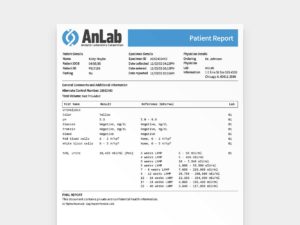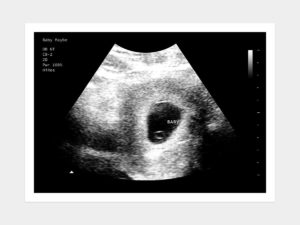
During pregnancy, it is natural for the body to undergo many changes, the most obvious change being weight gain. It is important to maintain a healthy weight for the well-being of both the mother and the growing baby. In this blog, we will explore the topic of weight gain during pregnancy.
Weight gain during pregnancy is a normal and necessary part of the process. Gaining enough weight to support your growing baby and have a healthy pregnancy is among the most important things you can do while you're expecting. But how do you know how much weight to gain during pregnancy? Though it is far from an exact science, and every pregnancy is different, there are guidelines you can follow to track your pregnancy weight by week and by trimester so you know the general pace you can expect to follow. The amount of weight gained can vary depending on factors such as pre-pregnancy weight, overall health, and individual circumstances. The weight gained during pregnancy is composed of the baby, placenta, amniotic fluid, increased blood volume, breast tissue, and stored fat for breastfeeding.
The Institute of Medicine (IOM) provides general guidelines for weight gain during pregnancy based on pre-pregnancy body mass index (BMI). BMI is calculated using a person's height and weight. Here are the recommended weight gain ranges based on BMI categories:
It is important to note that these ranges are general guidelines and may be adjusted based on individual circumstances. Healthcare providers will consider factors such as the woman's overall health, medical history, and the growth of the baby when determining appropriate weight gain targets.

Weight gain during pregnancy is not evenly distributed across the body. Here is a breakdown of how the weight is typically distributed:
For a 30-pound pregnancy weight gain, here is the approximate breakdown:
Monitoring weight gain during pregnancy is important to ensure it remains within the recommended range. It is crucial to approach weight gain with a focus on overall health rather than fixating solely on the numbers. Healthcare providers will typically monitor weight gain during prenatal appointments and provide guidance as needed.
Several factors can influence weight gain during pregnancy:
Multiple Pregnancies: Women carrying twins or multiples may be advised to gain more weight to support the growth and development of each baby adequately.
Pre-existing Conditions: Certain pre-existing conditions, such as diabetes or high blood pressure, may require specific dietary and weight management approaches as recommended by healthcare providers.
Nausea and Vomiting: Severe nausea and vomiting during pregnancy, known as hyperemesis gravidarum, can impact weight gain. In such cases, healthcare providers will closely monitor the situation and provide appropriate guidance.
Individual Metabolism: Each person's metabolism is unique, which can impact weight gain during pregnancy. Some individuals naturally gain weight more easily, while others may have a slower rate of weight gain.

While weight gain is expected during pregnancy, it is essential to focus on maintaining a healthy lifestyle rather than fixating on the numbers on the scale. Here are some tips for a healthy pregnancy:
Weight gain during pregnancy is a natural and necessary part of the process. Following the recommended weight gain guidelines based on pre-pregnancy BMI helps support the health of the woman and the developing baby. It is important to focus on maintaining a healthy lifestyle, including a balanced diet, regular exercise, and seeking appropriate support. Remember to consult with healthcare providers for personalized guidance and support throughout your pregnancy.
The information is presented as a general guide to present information on weight gain during pregnancy. It is for informational purposes only. The information provided is not intended to be the only information available about weight gain during pregnancy. The material provided is not expected to be a substitute for advice or information from your physician or health care provider.
If you have any questions, concerns, fears, apprehensions, unease, or worry about weight gain during pregnancy contact your health care provider immediately.








ALL WARRANTIES OF ANY KIND WHATSOEVER EXPRESS, IMPLIED, AND STATUTORY, ARE HEREBY DISCLAIMED. ALL IMPLIED WARRANTIES OF MERCHANTABILITY AND FITNESS FOR A PARTICULAR PURPOSE ARE HEREBY DISCLAIMED. THE PRODUCTS SOLD, INCLUDING SONOGRAMS, ULTRASOUNDS, FAKE PREGNANCY DOCUMENTS, AND FAKE PREGNANCY TESTS ARE SOLD ‘AS IS’ BASIS.
THE SITE CANNOT AND DOES NOT CONTAIN [MEDICAL/ LEGAL/ FITNESS/ HEALTH/ OTHER] ADVICE. THE INFORMATION IS PROVIDED FOR PRANKS PURPOSES ONLY AND IS NOT A SUBSTITUTE FOR PROFESSIONAL ADVICE.
ACCORDINGLY, BEFORE TAKING ANY ACTIONS BASED UPON SUCH INFORMATION, WE ENCOURAGE YOU TO CONSULT WITH THE APPROPRIATE PROFESSIONALS. WE DO NOT PROVIDE ANY KIND OF MEDICAL/ LEGAL/ FITNESS/ HEALTH ADVICE. THE USE OR RELIANCE OF ANY INFORMATION CONTAINED ON THIS SITE, OR OUR MOBILE APPLICATION, IS SOLELY AT YOUR OWN RISK.
THIS WEBSITE DOES NOT PROVIDE MEDICAL ADVICE. THE INFORMATION, INCLUDING BUT NOT LIMITED TO, TEXT, GRAPHICS, IMAGES AND OTHER MATERIAL CONTAINED ON THIS WEBSITE ARE FOR PRANK PURPOSES ONLY. NO MATERIAL ON THIS SITE IS INTENDED TO BE A SUBSTITUTE FOR PROFESSIONAL MEDICAL ADVICE, DIAGNOSIS OR TREATMENT. ALWAYS SEEK THE ADVICE OF YOUR PHYSICIAN OR OTHER QUALIFIED HEALTH CARE PROVIDER WITH ANY QUESTIONS YOU MAY HAVE REGARDING A MEDICAL CONDITION OR TREATMENT AND BEFORE UNDERTAKING NEW HEALTH CARE REGIMEN, AND NEVER DISREGARD PROFESSIONAL MEDICAL ADVICE OR DELAY IN SEEKING IT BECAUSE OF SOMETHING YOU HAVE READ ON THIS WEBSITE.
THE PARTIES AGREE THAT ANY PRODUCT PURCHASED ON THE BABY MAYBE WEBSITE SHALL NOT BE USED FOR ANY PROPOSE OTHER THAN AS A PRANK. WITHOUT EXCEPTION NO BABY MAYBE PRODUCT SHALL BE PROVIDED/SUBMITTED TO ANY GOVERNMENTAL OR OTHER AGENCY, MEDICAL DOCTOR, ARBITER OF A DISPUTE, AS PROOF OF PREGNANCY, PAST OR CURRENT, OR TO CLAIM ANY BENEFIT FOR WHICH A PREGNANT WOMAN MAY BE ELIGIBLE, OR ENTITLED TO RECEIVE, BASED ON HER BEING PREGNANT. NO HIPAA PROTECTED PATIENT HEALTH INFORMATION CONNECTED TO ANY BABY MAYBE PRODUCT, IS INTENDED, OR CONVEYED, WITH RESPECT TO THIS SALE.
THE PARTIES AGREE THAT BABYMAYBE IS NOT RESPONSIBLE FOR ANY LIABILITY WHATSOEVER FOR DELAYS IN SHIPPING THE PRODUCT. THE PARTIES FURTHER AGREE THAT THE SOLE REMEDY FOR ANY SHIPPING DELAYS IS THE REFUND OF THE PURCHASER’S PAYMENT FOR THE PRODUCT.
THE PARTIES AGREE THAT THE FORUM FOR ANY LEGAL ACTION ASSOCIATED WITH THE SALE AND PURCHASE OF THE PRODUCT IS THE STATE OF ILLINOIS.